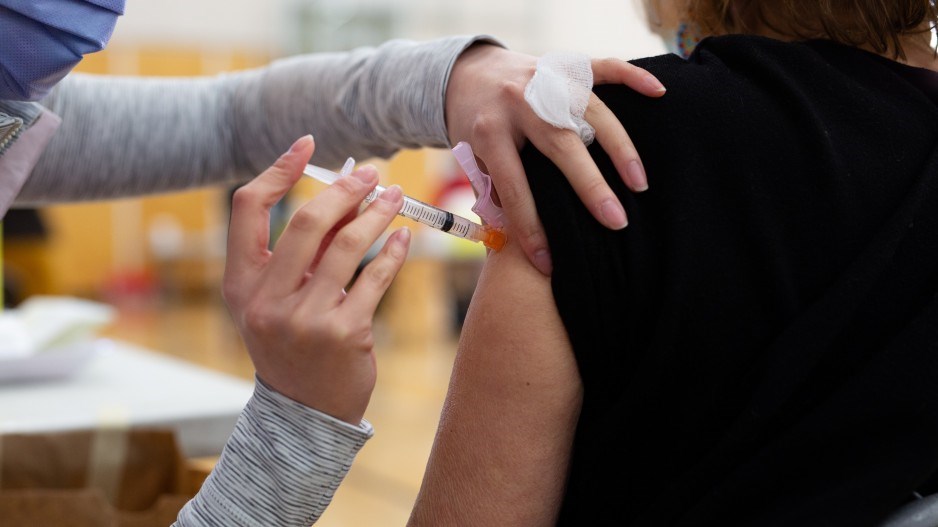The National Advisory Committee on Immunization (NACI) is urging some groups of Canadians to get a third vaccine dose against COVID-19 at least six months after their second dose.
B.C. began its own booster campaign in September, zeroing in on higher-risk populations such as those ages 70 years and older, Indigenous populations in rural locations, residents in long-term-care and assisted-living, the immunosuppressed and health-care workers who received their initial two doses at a shorter interval than the general population.
On Friday, NACI said it now “strongly recommends” boosters are offered at least six months after a second dose for those 50 or older, long-term care home residents, Indigenous people and those who received two doses of the AstraZeneca plc vaccine rather than the mRNA products offered by Pfizer Inc. (NYSE:PFE) and Moderna Inc. (NYSE:MRNA).
B.C. health officials committed in October to making third doses available to British Columbians who received their second doses at least six to eight months prior.
“We’re ahead of schedule,” B.C. Health Minister Adrian Dix said Friday.
He noted 209,000 second doses had been administered as of the first week of June. As of Friday — six months later — the province has administered 470,000 third doses.
“We’re going to see a big uptake in booster doses in January and February,” Dix added.
“We’ll be more challenged because there’ll be more booster doses to give more people passing that six-month mark in the next two to three months.”
As mass vaccine clinics have shuttered following the initial one- and two-dose campaigns, the province has been turning to smaller clinics and pharmacies to administer such doses.
As with the first mass vaccination campaign, the booster doses will be prioritized based on age and vulnerability.
While NACI is recommending those 50 or older receive their third dose at least six months after their second, Dix said “priority has been given to people over 70 because they got their second doses first and because they are the most vulnerable people.”
“People in their 60s are also vulnerable to serious outcomes from COVID-19 and they’re a priority as well. And that's why we're dramatically expanding … the actual number of people delivering immunizations at B.C. COVID-19 immunization [clinics] and community pharmacies.”
The government estimates it will begin administering boosters in January to those considered clinically extremely vulnerable (but not immunosuppressed), health-care workers in long-term-care and assisted-living, health-care workers in the community and then the remaining general population 12 and older.
British Columbians who initially received the AstraZeneca vaccine will only be offered mRNA vaccines — either Pfizer or Moderna.
Mixing and matching vaccines has been an accepted practice in B.C. and Canada throughout much of the vaccination campaign, but was only given the nod in the U.S. in October.




